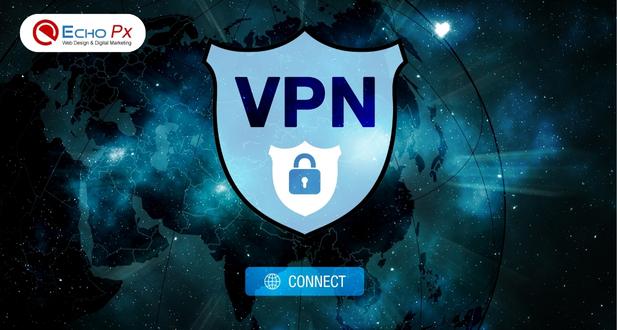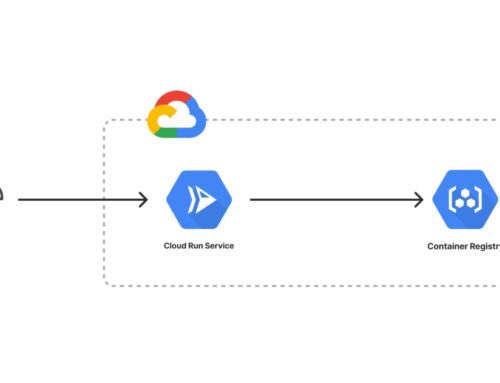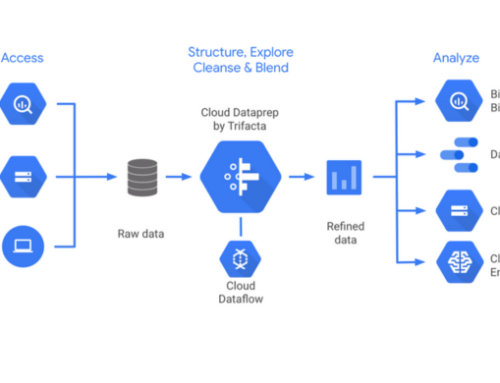Introduction
In the ever-expanding landscape of cloud computing, establishing secure and reliable connections between on-premises infrastructure and cloud environments is paramount. Google Cloud Platform (GCP) addresses this need with a robust networking solution, combining the power of Cloud VPN (Virtual Private Network) and Interconnect to provide a seamless and secure network infrastructure.
Overview of GCP Cloud VPN and Interconnect
GCP Cloud VPN and Interconnect are integral components of Google Cloud’s networking services, designed to facilitate connectivity between on-premises data centers and resources hosted on the Google Cloud Platform. These services play a pivotal role in enabling organizations to extend their network seamlessly to the cloud, fostering a hybrid cloud environment that integrates the flexibility of the cloud with the existing infrastructure.
Cloud VPN:
Google Cloud VPN establishes encrypted IPsec tunnels over the public internet, creating a secure connection between on-premises networks and virtual machine instances on GCP. This allows organizations to securely transmit data between their private data centers and Google Cloud, ensuring the confidentiality and integrity of the transmitted information.
Interconnect:
GCP Interconnect, on the other hand, offers a dedicated, private connection between on-premises networks and Google’s global network. It provides higher bandwidth and lower latency compared to traditional internet-based connections. With options such as Dedicated Interconnect and Partner Interconnect, organizations can choose the type of connection that best suits their requirements, whether it’s a direct physical link or a connection through a service provider.
Together, Cloud VPN and Interconnect form a comprehensive networking solution that caters to different connectivity needs. This combination is particularly beneficial for enterprises with specific performance, security, or regulatory requirements, allowing them to establish a reliable and efficient network infrastructure that seamlessly spans on-premises and cloud environments. In the following sections, we will delve deeper into the key features, benefits, and use cases of GCP Cloud VPN and Interconnect, exploring how these services contribute to a robust and interconnected cloud network.
GCP Cloud VPN
Definition and Purpose of GCP Cloud VPN
Google Cloud VPN, or Virtual Private Network, is a service that provides a secure and encrypted connection between on-premises networks and virtual machine instances hosted on Google Cloud Platform (GCP). The primary purpose of Cloud VPN is to establish a reliable, private, and encrypted communication channel over the public internet, ensuring the confidentiality and integrity of data transmitted between an organization’s private data center and resources on GCP. This allows enterprises to extend their on-premises network to the cloud securely, enabling seamless data exchange while maintaining a high level of network security.
Benefits of Using GCP Cloud VPN
The utilization of GCP Cloud VPN offers several key benefits. First and foremost, it enables organizations to establish a secure connection to GCP resources without the need for a dedicated physical connection. This flexibility allows for quick and cost-effective network expansion into the cloud. Additionally, Cloud VPN provides encryption for data in transit, safeguarding sensitive information from potential threats. The service is scalable, accommodating varying workloads and traffic demands, and it facilitates hybrid cloud architectures by seamlessly integrating on-premises infrastructure with GCP resources.
Types of GCP Cloud VPN Connections
GCP Cloud VPN supports two types of connections:
- Classic VPN (Policy-Based VPN):
- This type of VPN connection is suitable for simpler configurations where routing decisions are based on specific policies.
- It uses static routes and allows organizations to define policies based on source and destination IP addresses.
- Dynamic (Route-Based) VPN:
- Dynamic VPNs operate with dynamic (BGP) routing protocols, providing more flexibility in routing decisions.
- They are well-suited for complex network architectures where dynamic routing is preferred, adapting to changes in the network topology more effectively.
Understanding the specific requirements of the organization’s network architecture will guide the choice between Classic and Dynamic VPN connections, ensuring optimal performance and compatibility.
Setting Up and Configuring GCP Cloud VPN
Setting up and configuring GCP Cloud VPN involves a series of steps to establish a secure connection between the on-premises network and GCP. The process includes the creation of VPN gateways, tunnels, and the necessary configurations. Here is a detailed guide on how to set up and configure GCP Cloud VPN:
- Creating a VPN Gateway:
- In the GCP Console, navigate to the Networking section and select “Hybrid Connectivity.”
- Create a VPN gateway by providing the necessary details such as a name, region, and network selection.
- Configuring VPN Tunnels:
- Define the parameters for VPN tunnels, including the VPN gateway, remote traffic selectors, and pre-shared keys.
- Specify the type of VPN connection (Classic or Dynamic) based on the network requirements.
- Establishing BGP Sessions (For Dynamic VPNs):
- If opting for a Dynamic VPN, configure the BGP session parameters, such as BGP ASN and cloud router details.
- Ensure that the on-premises router is configured to establish a BGP session with the GCP Cloud Router.
- Verifying and Testing the Connection:
- After the setup, verify the status of the VPN tunnels and ensure successful connections.
- Test the connectivity between on-premises resources and GCP instances to confirm the VPN’s functionality.
- This step-by-step configuration process ensures a seamless and secure connection between on-premises networks and GCP resources.
Managing and Troubleshooting GCP Cloud VPN Connections
Efficient management and troubleshooting are essential aspects of maintaining a reliable GCP Cloud VPN connection. Key considerations include:
- Monitoring VPN Status:
- Regularly check the status of VPN tunnels in the GCP Console to ensure they are operational.
- Utilize monitoring tools to track performance metrics, such as latency and throughput, for proactive management.
- Logging and Auditing:
- Enable logging for VPN connections to gather detailed information about traffic and connection events.
- Regularly review logs to identify and address any anomalies or potential issues.
- VPN Metrics and Alerts:
- Set up alerts for critical VPN metrics, such as tunnel status changes or excessive packet loss.
- Proactively address potential issues based on predefined thresholds.
- Troubleshooting Connectivity Issues:
- In the event of connectivity issues, utilize diagnostic tools provided by GCP to identify and troubleshoot problems.
- Examine logs and metrics to pinpoint the source of the issue and take corrective actions.
- Communication with On-Premises Network Administrators:
- Establish effective communication channels with on-premises network administrators to address issues that may arise on either end.
- Collaborate on troubleshooting efforts and coordinate solutions.
By implementing robust monitoring practices and having effective troubleshooting procedures in place, organizations can ensure the ongoing reliability and performance of their GCP Cloud VPN connections.
Pricing and Considerations for GCP Cloud VPN
Understanding the pricing model and considerations for GCP Cloud VPN is crucial for effective cost management. Pricing factors include:
- Data Transfer Costs:
- GCP Cloud VPN pricing is based on the amount of data transferred over the VPN connection.
- Organizations should be mindful of both egress and ingress data transfer costs, especially for high-traffic applications.
- VPN Gateway Costs:
- The number of VPN gateways deployed affects costs.
- Consider the impact on pricing when creating multiple VPN gateways for redundancy or load distribution.
- Regional Variations:
- GCP Cloud VPN costs may vary based on the region in which the VPN gateway is deployed.
- Choose regions strategically to optimize costs while meeting performance requirements.
- Dynamic (BGP) Routing Costs:
- For Dynamic VPN connections using BGP, additional costs may apply.
- Evaluate the necessity of dynamic routing based on network complexity and requirements.
Organizations should regularly review their usage patterns, optimize configurations, and leverage Google Cloud’s pricing calculator to estimate and manage costs effectively. Additionally, considering factors such as redundancy and traffic patterns will contribute to an economically sound deployment of GCP Cloud VPN.
This comprehensive guide provides organizations with the knowledge needed to deploy, configure, and manage GCP Cloud VPN effectively, ensuring a secure and seamless connection between on-premises networks and Google Cloud resources.
GCP Cloud Interconnect
Definition and Purpose of GCP Cloud Interconnect
Google Cloud Interconnect is a networking solution that establishes dedicated and high-performance connections between on-premises data centers and Google Cloud Platform (GCP). The primary purpose of Cloud Interconnect is to provide organizations with a private, reliable, and low-latency connection to GCP resources. It enables enterprises to extend their on-premises network seamlessly to the cloud, ensuring secure and efficient data exchange. By offering dedicated connectivity options, Cloud Interconnect addresses the need for increased bandwidth, reduced latency, and enhanced reliability, making it ideal for organizations with high-performance requirements.
Benefits of Using GCP Cloud Interconnect
Utilizing GCP Cloud Interconnect offers several key benefits. First and foremost, it provides organizations with dedicated and private connections, significantly enhancing network reliability and reducing latency compared to public internet connections. The service offers higher bandwidth options, making it suitable for data-intensive workloads and applications that demand consistent and low-latency connectivity. Additionally, Cloud Interconnect facilitates hybrid cloud architectures, allowing organizations to seamlessly integrate on-premises infrastructure with GCP resources. Enhanced security, improved performance, and the ability to meet specific regulatory and compliance requirements are among the notable advantages of adopting GCP Cloud Interconnect.
Types of GCP Cloud Interconnect Connections
GCP Cloud Interconnect offers two primary types of connections, each catering to different requirements:
- Dedicated Interconnect:
- Dedicated Interconnect provides a direct physical connection between an organization’s on-premises network and Google’s network.
- It offers higher bandwidth options (10 Gbps or multiples of 10 Gbps) and is suitable for organizations with consistent and high-volume data transfer needs.
- Dedicated Interconnect allows for a dedicated circuit, offering a more predictable and reliable connection compared to shared resources.
- Partner Interconnect:
- Partner Interconnect enables organizations to connect to GCP through supported service providers, extending the benefits of dedicated connectivity even if a direct physical connection is not feasible.
- Bandwidth options are typically offered in increments of 50 Mbps, providing flexibility for varying connectivity needs.
- Partner Interconnect is suitable for organizations that prefer to leverage the services of a supported service provider for their connection to GCP.
Understanding the specific requirements of the organization’s network architecture will guide the choice between Dedicated and Partner Interconnect, ensuring optimal performance and compatibility.
Setting Up and Configuring GCP Cloud Interconnect
Setting up and configuring GCP Cloud Interconnect involves a series of steps to establish a dedicated and reliable connection between the on-premises network and GCP. The process includes the creation of interconnect attachments, circuits, and the necessary configurations. Here is a detailed guide on how to set up and configure GCP Cloud Interconnect:
- Creating an Interconnect Attachment:
- In the GCP Console, navigate to the Networking section and select “Hybrid Connectivity.”
- Create an interconnect attachment by providing details such as a name, region, and the associated network.
- Configuring an Interconnect Circuit:
- Specify the details for the interconnect circuit, including the type (Dedicated or Partner), capacity, and VLAN attachments.
- Choose the desired interconnect location based on proximity and performance considerations.
- Provisioning Cross-Connects (For Dedicated Interconnect):
- For Dedicated Interconnect, coordinate with a colocation facility to provision physical cross-connects between the organization’s equipment and Google’s network.
- Verify the readiness of the cross-connects for the interconnect circuit.
- Verifying and Testing the Connection:
- After the setup, verify the status of the interconnect circuit and ensure successful connections.
- Test the connectivity between on-premises resources and GCP instances to confirm the interconnect’s functionality.
- Configuring Routing and BGP (For Dedicated Interconnect):
- Configure routing and Border Gateway Protocol (BGP) settings for Dedicated Interconnect to facilitate dynamic routing between on-premises and GCP networks.
- Ensure that on-premises routers are configured to establish BGP sessions with Google’s routers.
This step-by-step configuration process ensures a seamless and dedicated connection between on-premises networks and GCP resources.
Managing and Troubleshooting GCP Cloud Interconnect Connections
Efficient management and troubleshooting are essential aspects of maintaining a reliable GCP Cloud Interconnect connection. Key considerations include:
- Monitoring Interconnect Status:
- Regularly check the status of interconnect circuits in the GCP Console to ensure they are operational.
- Utilize monitoring tools to track performance metrics, such as bandwidth utilization and packet loss, for proactive management.
- Logging and Auditing:
- Enable logging for interconnect circuits to gather detailed information about traffic and connection events.
- Regularly review logs to identify and address any anomalies or potential issues.
- Interconnect Metrics and Alerts:
- Set up alerts for critical interconnect metrics, such as circuit status changes or excessive bandwidth utilization.
- Proactively address potential issues based on predefined thresholds.
- Troubleshooting Connectivity Issues:
- In the event of connectivity issues, utilize diagnostic tools provided by GCP to identify and troubleshoot problems.
- Examine logs and metrics to pinpoint the source of the issue and take corrective actions.
- Communication with Service Providers (For Partner Interconnect):
- Establish effective communication channels with service providers for Partner Interconnect to address issues that may arise on either end.
- Collaborate on troubleshooting efforts and coordinate solutions.
By implementing robust monitoring practices and having effective troubleshooting procedures in place, organizations can ensure the ongoing reliability and performance of their GCP Cloud Interconnect connections.
Pricing and Considerations for GCP Cloud Interconnect
Understanding the pricing model and considerations for GCP Cloud Interconnect is crucial for effective cost management. Pricing factors include:
- Port Fees:
- GCP Cloud Interconnect involves port fees based on the capacity of the interconnect circuit.
- Organizations should choose the appropriate capacity based on their bandwidth requirements.
- Data Transfer Costs:
- Data transfer costs apply to the amount of data transmitted over the interconnect circuit.
- Organizations should be mindful of both egress and ingress data transfer costs.
- Dedicated Interconnect vs. Partner Interconnect Costs:
- Dedicated Interconnect typically incurs higher costs due to the dedicated physical connection.
- Partner Interconnect costs may vary based on the service provider and selected bandwidth options.
- Regional Variations:
- GCP Cloud Interconnect costs may vary based on the region in which the interconnect circuit is deployed.
- Choose regions strategically to optimize costs while meeting performance requirements.
- Considerations for Redundancy:
- Organizations planning for redundancy should account for additional costs associated with redundant interconnect circuits.
- Redundancy ensures high availability but may impact overall costs.
Organizations should regularly review their usage patterns, optimize configurations, and leverage Google Cloud’s pricing calculator to estimate and manage costs effectively. Additionally, considering factors such as redundancy and traffic patterns will contribute to an economically sound deployment of GCP Cloud Interconnect.
This comprehensive guide provides organizations with the knowledge needed to deploy, configure, and manage GCP Cloud Interconnect effectively, ensuring a dedicated and high-performance connection between on-premises networks and Google Cloud resources.
Comparison of GCP Cloud VPN and Interconnect
Performance Comparison of GCP Cloud VPN and Interconnect
The performance of GCP Cloud VPN and Interconnect can significantly impact the overall connectivity experience for organizations. Each option has distinct characteristics:
GCP Cloud VPN:
- Scalability: Cloud VPN is suitable for small to medium-scale deployments, offering sufficient scalability for many use cases.
- Latency: The performance of Cloud VPN may be subject to higher latency compared to dedicated connections, as it relies on the public internet.
- Bandwidth: While Cloud VPN supports varying bandwidth options, the performance may vary based on internet conditions.
GCP Cloud Interconnect:
- Dedicated Connection: Cloud Interconnect provides dedicated and private connections, resulting in lower latency and more predictable performance.
- Scalability: Suitable for high-scale deployments, Cloud Interconnect offers higher scalability with options for larger bandwidth capacities.
- Low Latency: With dedicated connections and Google’s global infrastructure, Cloud Interconnect typically delivers lower latency compared to VPN.
In scenarios where low latency and high scalability are critical, GCP Cloud Interconnect may offer superior performance compared to Cloud VPN.
Security Comparison of GCP Cloud VPN and Interconnect
Ensuring the security of data in transit is a paramount concern for organizations. Both GCP Cloud VPN and Cloud Interconnect provide security features, but they differ in their approaches:
GCP Cloud VPN:
- Encryption: Cloud VPN encrypts data transmitted over the public internet using secure VPN protocols like IPsec.
- Authentication: Users and devices connecting via Cloud VPN are authenticated to establish secure connections.
- Public Internet Dependency: While encryption is robust, Cloud VPN relies on the public internet, which may introduce some security considerations.
GCP Cloud Interconnect:
- Dedicated Connection: Cloud Interconnect offers dedicated and private connections, reducing exposure to potential threats associated with the public internet.
- Encryption: Similar to Cloud VPN, Cloud Interconnect employs encryption protocols for data security.
- Enhanced Isolation: With dedicated connections, Cloud Interconnect can provide enhanced isolation from internet-based threats.
For organizations with stringent security requirements, especially those dealing with sensitive data, Cloud Interconnect’s dedicated and private connections may offer a more secure option compared to Cloud VPN.
Cost Comparison of GCP Cloud VPN and Interconnect
The cost implications of choosing between GCP Cloud VPN and Cloud Interconnect are influenced by several factors:
GCP Cloud VPN:
- Usage-Based Pricing: Cloud VPN typically follows a usage-based pricing model, where organizations pay for the data transfer and the specific configuration of VPN instances.
- Lower Initial Costs: Cloud VPN may have lower initial setup costs compared to dedicated connections.
GCP Cloud Interconnect:
- Port Fees: Cloud Interconnect involves port fees based on the capacity of the interconnect circuit, potentially resulting in higher initial costs.
- Data Transfer Costs: Similar to Cloud VPN, Cloud Interconnect incurs data transfer costs.
Considerations: Organizations should consider their data transfer patterns, required bandwidth, and long-term usage projections when evaluating the cost-effectiveness of each option. While Cloud VPN may be more cost-effective for smaller deployments, Cloud Interconnect can offer better value for larger, data-intensive workloads.
Use Case Scenarios for GCP Cloud VPN and Interconnect
Choosing between GCP Cloud VPN and Cloud Interconnect depends on specific use case requirements. Here are scenarios where each solution may be more suitable:
GCP Cloud VPN:
- Remote Workforce: Cloud VPN is suitable for connecting remote workers securely to GCP resources over the internet.
- Small to Medium-Scale Deployments: For organizations with smaller-scale deployments or where the data transfer volume is moderate, Cloud VPN can provide a cost-effective solution.
- Agile Deployments: Cloud VPN is well-suited for agile deployments that require quick setup and flexibility.
GCP Cloud Interconnect:
- High-Performance Requirements: For applications with high-performance requirements, such as real-time analytics or data-intensive workloads, Cloud Interconnect offers dedicated and low-latency connections.
- Large-Scale Deployments: Cloud Interconnect is designed to scale efficiently, making it suitable for larger organizations with substantial data transfer needs.
- Sensitive Workloads: Organizations dealing with sensitive data or regulatory compliance may prefer the enhanced security and isolation provided by Cloud Interconnect.
Considerations: Organizations should evaluate their specific use case requirements, performance expectations, and scalability needs when choosing between Cloud VPN and Cloud Interconnect. Hybrid scenarios that leverage both solutions may also be considered for optimizing connectivity in diverse environments.
Conclusion
In conclusion, the choice between GCP Cloud VPN and Cloud Interconnect hinges on the specific needs and priorities of organizations seeking secure and efficient connectivity to Google Cloud resources. Both solutions offer unique advantages, addressing different use case scenarios.
GCP Cloud VPN, with its usage-based pricing model and flexibility, is well-suited for organizations with smaller-scale deployments, remote workforces, or agile projects. It provides a cost-effective option for secure connections over the public internet and is ideal for scenarios where lower initial costs and quick deployment are crucial.
On the other hand, GCP Cloud Interconnect excels in delivering dedicated, low-latency connections for high-performance requirements and large-scale deployments. It is particularly beneficial for organizations dealing with data-intensive workloads, requiring enhanced security through dedicated connections and compliance with stringent regulatory standards.
Ultimately, organizations should carefully assess their performance expectations, scalability needs, and security requirements to make an informed decision. It’s not necessarily a choice between one or the other; in many cases, a hybrid approach leveraging both GCP Cloud VPN and Cloud Interconnect may offer the optimal balance, ensuring a flexible, cost-effective, and high-performance connectivity strategy for diverse use cases within the Google Cloud ecosystem.









